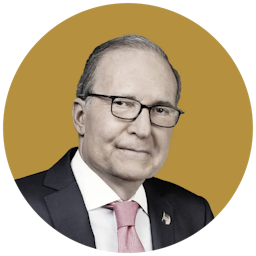Benjamin Netanyahu Shares His Story
The prime minister discusses the importance of the decision to move the American embassy in Israel, his courageous 2015 speech to Congress, and some crucial lessons of free-market economics.

Today, as you may know, is the fifth anniversary of the decision by President Trump to move the American embassy in Israel to Jerusalem.
Prime Minister Netanyahu called that a crucial decision — indeed, he called it a biblical decision, going back 3,000 years — and during a just-completed interview we discussed how it was a major contributor to the peace agreement called the Abraham Accords, which was completed a few years later between the U.S., Israel, the UAE, and Bahrain, followed by pacts with Morocco, Sudan, and Kosovo.
The prime minister and I also talked about his courageous speech before Congress in 2015, when he laid out his disagreements with the Obama administration regarding a nuclear deal with Iran and other matters. That speech (which is a prominent part of Mr. Netanyahu’s new book, “Bibi, My Story”) may itself have laid the intellectual groundwork for the embassy move to Jerusalem as well as the Abraham Accords, and a complete shift away from the central role of Palestine and toward a new peace in the Middle East based on diplomacy, trade, and investment between Israel and her Arab neighbors.
Also, the prime minister and I spent some time talking about free-market economics and how he was able to change Israel’s socialist state into a capitalist one.
This began years ago when he was finance minister and, yes, he held several meetings in New York with a late supply-side guru, Jack Kemp, and one Larry Kudlow, which the prime minister kindly acknowledged.
He then relayed a story — that Kemp told him to do three things: cut taxes, cut taxes, and cut taxes. But the PM, while taking that advice, added to it the need to cut the heavy hand of government in order to lighten the burden on free enterprise and entrepreneurship.
Limited government, spending cuts, tax cuts, and deregulation all worked to turn Israel into a dynamic, entrepreneurial, technology-led economy whose per-capita GDP now exceeds that of France, U.K., Germany, and others.
On top of all that, Israel privatized its energy agency and has now discovered vast natural gas reserves in the eastern Mediterranean.
All of which shows the value of the free flow of trade and investment, alongside free markets, as the very foundation of peace through strength.
These are crucial lessons going back to Ronald Reagan’s winning the Cold War and Prime Minister Netanyahu’s establishing Israel as a world power.
By the way, here in the U.S. right now we are fighting the same battles for limited government, spending restraint, tax cuts, deregulation, natural gas development, and an end to big-government socialism.
From Mr. Kudlow’s broadcast on Fox Business News.

